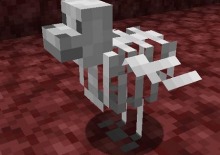Advertisement
Human Expenditure Program
Human Expenditure Program is a game that shifts attention from traditional entertainment to the uneasy relationship between player and character. At its center is Harvey Harvington, a man confined within a system where every action taken by the player directly impacts his life. The experience avoids complex mechanics or expansive environments, instead focusing on how responsibility and consequence build tension over time.
Harvey As The Anchor
Harvey is not designed as a replaceable figure. He reacts in real time, and his memory ensures that nothing the player does can be forgotten. This persistence transforms even the most routine actions into events with long-term impact. Harvey becomes the anchor of the narrative, forcing the player to reflect on choices and their weight. His role is to embody the link between action and consequence, making him the measure of every decision.
Game Design And Flow
The gameplay structure of Human Expenditure Program relies on repeating cycles of interaction. The player must provide food, respond to Harvey’s needs, and handle small scenarios that emerge within the program. Although each task may appear ordinary, the design ensures they accumulate into significant results, creating multiple pathways through the experience.
Core aspects include:
· Care mechanics that directly affect Harvey’s well-being
· A branching narrative determined by player choices
· A memory system that preserves all past actions
· Several endings that reveal contrasting outcomes
· Voice acting that grounds Harvey’s presence
Ethical Layers
By naming itself a “program,” the game emphasizes how Harvey’s existence is regulated by a structure that treats him as data to be managed. The player is not placed outside this framework but within it, responsible for carrying out its logic. This design choice raises questions about exploitation, accountability, and the cost of control. The tension comes not from external threats but from the realization of complicity.
Human Expenditure Program ultimately stands apart because it uses minimal tools to create meaningful reflection. The mechanics are intentionally simple, but the consequences are designed to feel permanent. Each replay reveals new branches and perspectives, while Harvey’s memory ensures that choices cannot be dismissed. The game asks players not to master a system but to consider what their treatment of Harvey reveals about their values and their relationship to power.








































































































